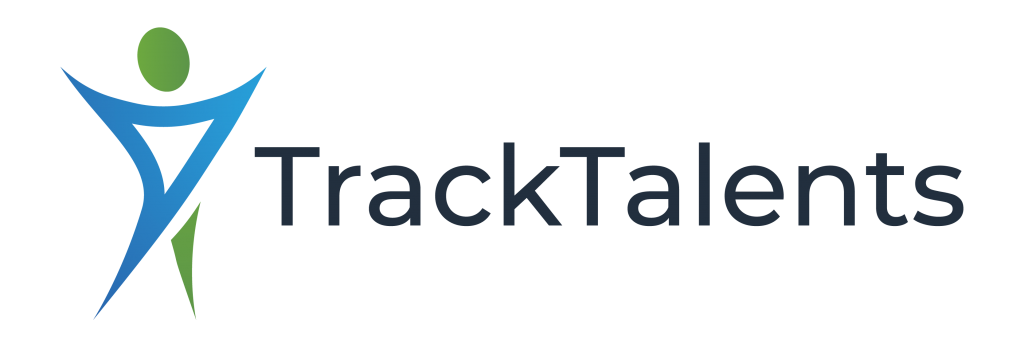The most important recruitment software features include candidate management, job posting, interview management, and more. Make sure that the system you choose has a unified interface for all these functions.
The ability to automate transactional email communication using personalized templates is an essential feature for recruiting teams. This reduces manual effort and provides a consistent user experience for candidates.
Importance of choosing the right recruitment software
In a world of remote hiring (or the growing trend of it), candidates will appreciate software that makes it easy for them to check application statuses and stay engaged. The right recruiting platform also facilitates sending automated messages like interview reminders and selection or rejection notifications.
Recruiting software that integrates with other key business systems allows staffing agencies to work more efficiently by streamlining communication across teams and platforms. Look for time-saving features like built-in integrations with email providers, digital calendars, background-check platforms, and skill assessment tools.
Recruiting software with a mobile app is another essential feature for recruiting agencies. This enables recruiters to keep up with applicant communication while they are away from the office, which can improve work motivation and increase productivity. Many recruitment software vendors also offer several customer support options, including phone and live chat, so you can ask questions or get help with the platform at any point in the process.
Resume Parsing and Screening
Resume parsing is a key feature of recruitment software that scans and analyses resumes submitted by applicants. This helps recruiters identify and select the best candidates for specific job openings. It can also help streamline the interview process and improve hiring efficiency.
A good resume parsing system should be able to recognize different formats and language variations, as well as distinguish between relevant and irrelevant information. It should also be able to process multiple files in bulk and extract data from images.
It is important to have a flexible and customizable resume parsing solution that can meet the unique needs of your organization. For example, you may need to set up custom keyword lists for the positions you are recruiting for or change your parsing rules as your company grows and evolves. You should also be able to integrate your ATS with other tools and systems to improve collaboration and productivity.
Interview Scheduling and Management
Interview scheduling is often one of the first steps in a candidate’s application process, and recruitment software can make this task easier for recruiters. Look for interview scheduling tools that support diverse types of interviews, including panel and round-robin, and can manage multiple schedules in the same session. They should also offer mobile optimization and a convenient way for candidates to reschedule if necessary.
Recruitment software also streamlines other important tasks that may be involved in the hiring process, such as checking references, running background checks, and completing employment contracts. This helps reduce the time-to-hire and ensures a consistent candidate experience throughout the entire process.
Look for a recruiting tool that offers CRM integrations to simplify information flow and enhance organizational transparency and communication. CRM integrations also allow recruiters to track candidate engagement and nurture them through effective email sequence management directly from the platform.
Candidate Relationship Management
Recruiting software should make it easy for talent teams to communicate with candidates. Whether that means a private message or a tailored newsletter, it is important to provide a consistent, personalized experience that keeps candidates engaged throughout the process.
Candidate relationship management features can help streamline and improve the candidate experience while saving time and resources for your team. Some key candidate management tools to look for include candidate profiling, job posting, applicant tracking, talent analytics, and more.
A good recruiting CRM should also enable you to track and manage your hiring pipeline, even when you are not logged into the system. This is essential for ensuring that you are not missing any opportunities to connect with qualified candidates.
Automated Workflows and Communication
Recruiting automation tools speed up the recruitment process and enable recruiters to focus on more strategic aspects of talent acquisition. Using AI, these tools can streamline screening and assessment processes by analyzing vast amounts of data faster and more accurately than humans. This eliminates the need for manual processing and ensures a thorough vetting of candidates, contributing to better hiring decisions.
Dynamic interview scheduling features help to ensure a seamless candidate experience by automatically coordinating interviews based on the recruiter and candidates’ availability. They also help to minimize the back-and-forth communication that is typically required to schedule interviews, saving time, and reducing administrative burden.
Recruiting automation tools can also improve the candidate experience by enabling you to send automated surveys following each stage of the hiring process. This helps to gather feedback on the recruitment experience and identify areas where improvements can be made.
Analytics and Reporting
Recruiting software is a powerful tool that can help organizations improve their hiring processes. To make the most of it, ensure that everyone on your team understands how to use the tool effectively. Provide training sessions and encourage users to ask questions to maximize their experience with the software.
Using recruiting software can also save HR professionals time by automating resume parsing and screening, and interview scheduling capabilities. Recruiters can then focus more attention on building relationships with candidates and ensuring they have an engaging hiring experience.
Recruitment analytics tools can also enable a more data-driven decision-making process by providing real-time and custom reports. These can include graphs and charts that highlight key recruitment metrics such as candidate sourcing trends, performance, and ROI. They can even help reduce costs by identifying the most effective channels for recruiting talent. They can also provide detailed reporting on hiring speed, including a breakdown of times to hire by job type and business unit.





